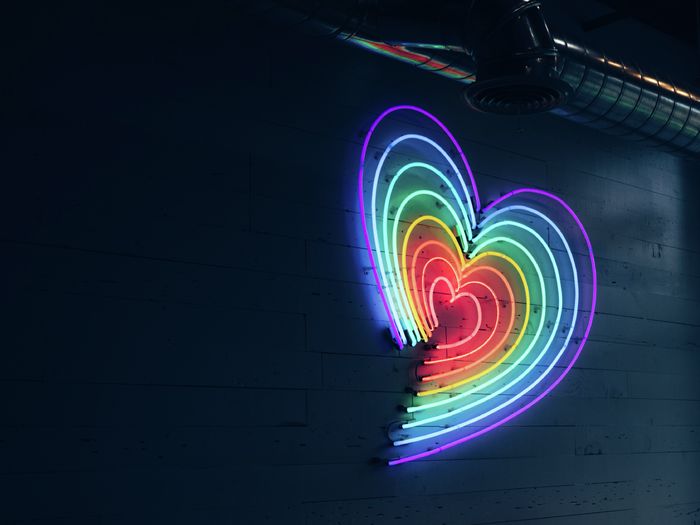Celebrating LGBTQ+ History through Cinema this February
Heidi Atkins builds a catalogue of films that celebrate queer culture this LGBTQ+ history month

It’s LGBTQ+ history month, and while I’d love to celebrate with a fun flick about queer culture, the film industry is a little bit obsessed with packaging any movies on the topic into a neat box of sheer misery. This is a well documented Hollywood habit that breeds a problem for the community. When all that’s put on the big screen is movies about how miserable it is to be gay, coming out becomes a daunting task.
Queer youth deserve better media about being LGBTQ+ and the lively cultures that come along with their identity. So I’ve sifted through a seemingly endless sea of Brokeback Mountains and The Danish Girls to bring you four gems that celebrate queer culture.
The Watermelon Woman (1996)
The Watermelon Woman is a mockumentary that follows Cheryl Dunye on a quest to find out the identity of an actress she’s seen in an old film, credited only as ‘The Watermelon Woman’. As she tries to uncover the mystery, she meets the actress’s life partner, a woman named June, and discovers a historic black LGBTQ+ culture in her city which has existed since the 1930s with ‘stone butches’ who used to attend secret gay clubs.
Dunye’s on-screen relationship with the rather entitled Diana is fantastically written, and the highs and lows of her friendship with her co-worker Tamara are a joy to watch. Despite the fictive relationships, The Watermelon Woman does show you something real. In the legacies of underground gay bars and secret relationships, Dunye helps her viewers reconnect with a lineage of LGBTQ+ history that has been left out of the textbooks.
But I’m A Cheerleader (1999)
Megan Bloomfield has been sent off to a conversion camp, the rather tritely named ‘True Directions’. She’s shocked: there’s no way she’s a lesbian, she thinks… she’s a Cheerleader. Enter Graham, and Megan quickly falls for her in a romantic plot that’s every bit as charming as it is cheesy.
I’ll admit, ‘romance in conversion therapy’ is a pretty played-out misery trope in movies about gay people (looking at you, Miseducation of Cameron Post) but Babbitt’s film is one that will make you laugh. The camp-ified conversion centre pokes fun at how bizarre Christian puritan culture is, and Cathy Moriarty as Mary Brown is nothing short of comedic genius.
Importantly though, the film shows a campy, gay culture existing and thriving even when it’s at its most oppressed. It highlights the irony that, in their attempts to rid people of homosexuality, these camps actually brought gay people together. It’s a testament to the resilience of LGBTQ+ culture and, if nothing else, a very fun romcom.
John Was Trying to Contact Aliens (2020)
John spends his days in a cabin in a southern state playing music for aliens. That’s really all he does, all day. By his side is his partner (also called John), and the two have dedicated their lives to giving those out there a little taste of our culture through music from all around the world.
This is a short and simple Netflix documentary that really brings nothing but joy. John is happy living life the way he is, happy with a burly husband, happy with the thing he’s dedicated his life to, happy with the record wall that gets beamed out to the extra-terrestrials. Seeing ‘happy’ older gay men in film is definitely a very sweet and welcome change.
Paris is Burning (1990)
Made over four years, Paris is Burning follows the New York City Ball circuit: a ring of drag performers renting out halls for competitions. They produce a rich and beautiful community between them, create new family homes after they’ve been kicked out, and develop a competition unlike anything else you’ve seen. The film explores a burgeoning trans culture and explicitly deals with gender identity in a way that documentaries 30 years later still seem unable to.
Parts of it are very hard-hitting and there’s painful stories behind some of the performers, but Paris is Burning is a film about living and thriving in spite of struggle. The artists have created an unapologetic, vibrant culture even when everything seems against them. To paraphrase Nietzsche: when you are silenced, it is only natural to want to shout. In a telling moment, a patron of the balls remarks that the space allows him to feel ‘100% okay’ with his identity when he’s in there, comparing ball culture to ‘straight’ football culture. Paris is Burning is a time capsule of a complicated 80s queer culture. It’s beautiful, moving, dramatic, and it could not be more celebratory.










